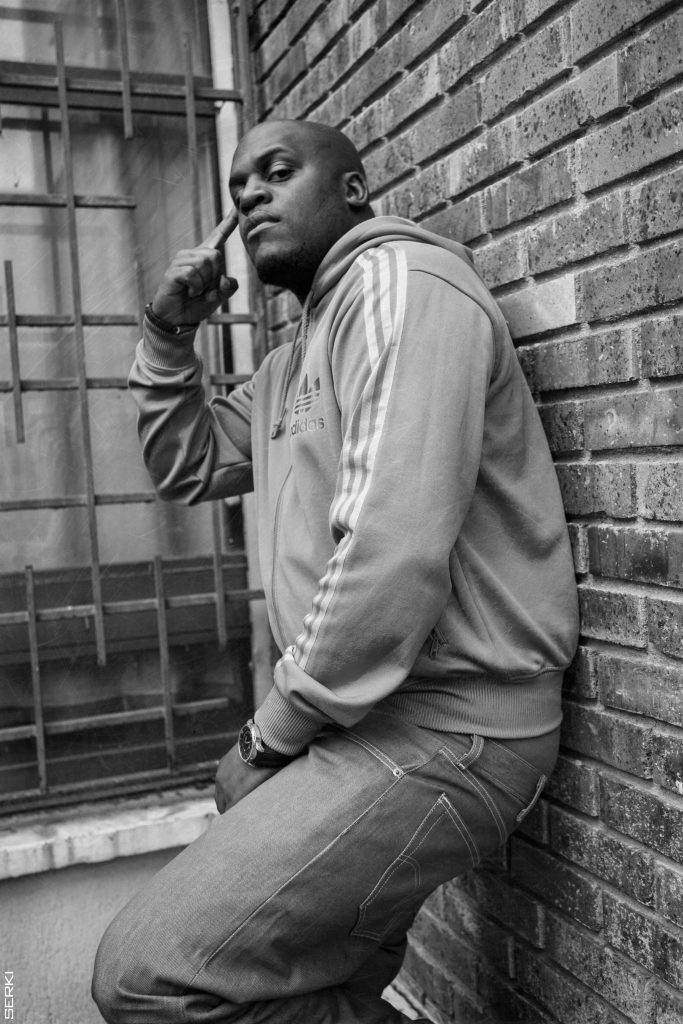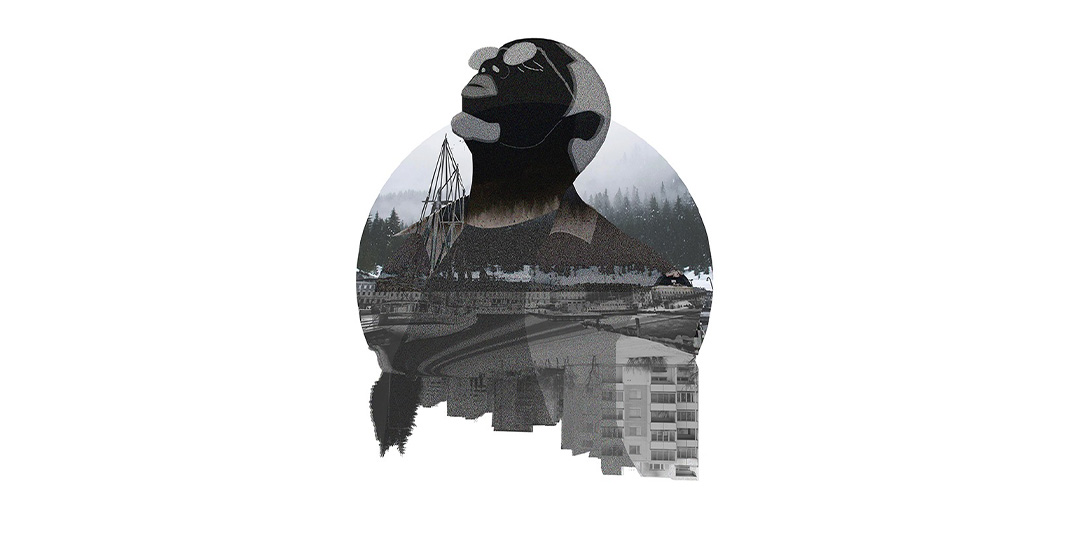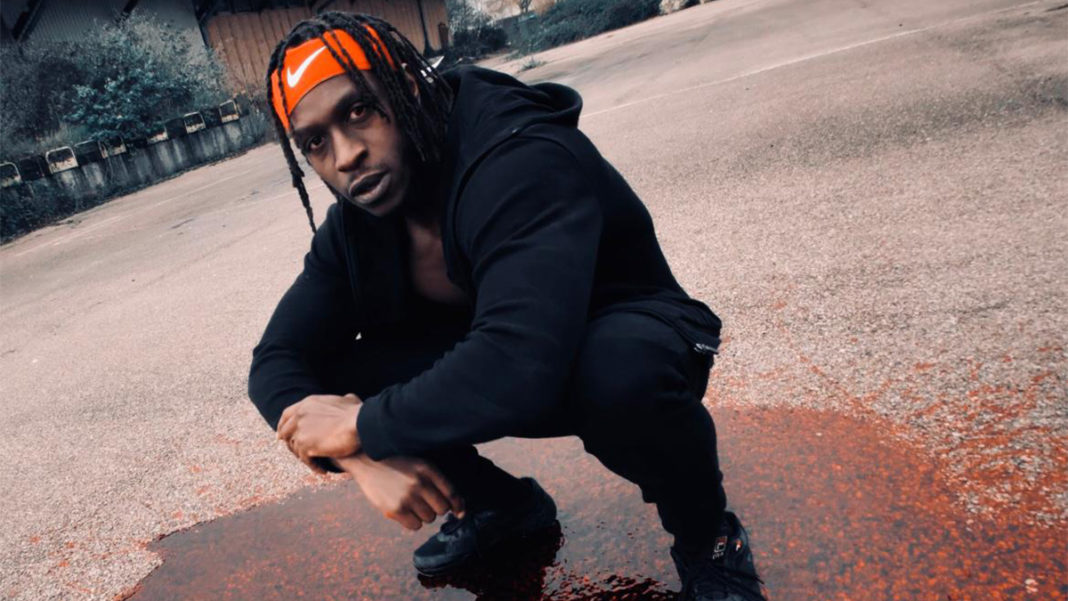I give it a shot to hit up two major Rap websites and a radio station. I’m quite the gatecrasher, you see. It’s my thing! For instance, before getting my first piece published by Vice, I had zero connections there. I picked up my phone, dialed the media’s main line, and with all the seriousness I could muster, I announced, “Mr. V.S. on the line, I’d like a word with Julien Morel (the editor-in-chief at the time).
The receptionist was just about to hand him the receiver. Then she came back to me and asked, “May I ask who’s calling?” That’s when I launched into my story about the identity-based rapper, Kroc Blanc, who rapped while aligning himself with far-right ideologies in France. The topic got the green light. I even conducted a brief video interview with Kroc Blanc that I shared here and there. He appeared in a mask. He elaborated on a concept he termed “territorial racism.” His most twisted statement was that he envisions “a European as superior in Europe” and “an African as superior in Africa.” So, according to his “post-Nazi” theories, my Iranian genes supposedly make me the perfect inhabitant of the Middle East and render someone who doesn’t belong in Europe.
So, here we Easterners are, supposedly only good for traumatizing veiled women and planting bombs. And in his stereotyped vision, people from places like Ivory Coast, whom he probably sees as tribal populations running across the savannah, are supposedly only good for developing their arid land. Booba, the eminent philosopher of the Rap Game, has already touched on this subject: “What can my people do, besides climbing trees, shaking you down at recess, and calling for arms?” (Booba – “Paradis”).
These “light version” theories are now being picked up by renowned journalists who thrive in the realm of high-end “clickbait” media. They’re not talking about Rap; they’re discussing overall insecurity or the Islamic veil in times of economic crisis.
After some initial stumbling, the head of the major Rap website agrees to have me on his radio show. He hosts a program there. He’s more elusive than a banker when you’re begging for a loan, or worse, like an ex who’s got your coffee machine. Rackim hosts a show. We have a meeting scheduled with him and my colleague Aline in the evening. The boss, Rackim, tells me that they’re having Sofiane on the radio tonight and I’ll also get the chance to meet him.
During that time, the founder of Affranchis Music hasn’t yet unveiled his freestyles under the hashtag #JesuispasséchezSo (I visited So’s place). He’s well-known among insiders but hasn’t earned the immense respect of the general public yet. He’s just started compiling his “blacklists.” I’m getting the information all mixed up. Aline, who isn’t well-versed in Rap, suggests that Sofiane is probably “Sofiane from Star Academy.” Two questions nag at me. First, why did a Hip Hop radio invite Sofiane from Star Academy? Does Sofiane from Star Academy even have a career anymore? Well, we’ll see.
Srab gives me a call! I share the good news with him. I’m going to establish partnerships with two important media outlets, and the communications agency is starting to take shape. Srab dismisses all the hypotheses with a single gesture, saying, “Great, but what will it bring to my indie artists?” I don’t know, exposure maybe? No, Srab is very opinionated on the matter. He won’t sell out to the industry. This is where you grasp the generational conflict in French Rap. Srabs like Srab himself are like a slice of Mc Jean Gab’1 from the ’90s: they annoy everyone. I think to myself that he’ll mellow out over time, or maybe he won’t.
In the afternoon, we arrange the interview with Fik’s Niavo for Srab and his media outlet. The man known as Malcolm Fik’s is an essential figure in the underground rap scene. The rapper hails from the 91 area code. For reasons not entirely clear, this generation of rappers in the 91 region turned to the depths of American culture for their influences. NBA fanatics, enthusiasts of American rap, and admirers of prominent figures in African American culture, the rappers from the 91 are mentally in the West Coast. It’s not just about Hip Hop or a fashion style; it’s also about a culture of dissent.

The rapper who was part of the Ul’team Atom group, where a certain Sinik emerged in Les Ulis, is a conscious rapper. Working for the community during the day, he becomes a rapper by night, and like a modern-day Uzbek from “Persian Letters,” he points out the inconsistencies of our society. He’s Hood’s version of Superman. He only talks about his artistic projects. But he’s a master of “edutainment,” part of those who believe that today’s rappers have a significant responsibility – to show the way while playing with entertainment. Fik’s is one of the first to commission a promotional campaign from us.
After the editing, we arrive at the radio station. Antoine lets us in, and Rackim is in the middle of interviewing Sofiane. Aline then drops this legendary line: “But that’s not Sofiane!” And indeed, it is him, but it’s not Sofiane from Star Academy. At the end of his interview, Sofiane stands up and launches into a memorable freestyle for the radio. The rapper already exudes an exceptional aura… With his charisma, he commands the tiny one-square-meter room. The microphones line up as if in a procession. His phrasing, the work on his flow, is the legacy of the founders of French rap; the rest, his eloquence, his talent, that’s what he’ll bring to rap in the coming years. Everyone knows it, but no one knows exactly when. In the conclusion of his freestyles “#JesuispasséchezSo,” he declares: “seeing changed looks, I thought it was the epilogue, it wasn’t counted in years, it was counted in episodes.” The rapper leaves the set, but he doesn’t seem pleased. The freestyle was exceptional, but Sofiane isn’t entirely satisfied; he’s a bit of a “perfectionist.” Maybe it’s this drive, this force that pushed him to exceed himself every day, making him one of the most influential producer-rappers in Paris. One of the “New Godfathers.”
Rackim and Antoine settle into the studio with us. Behind the two men, Will, the director of #31# who started his career here, watches the discussions from afar. We propose to manage his website in exchange for advertising banners. He’s open to negotiation, intelligent, and not necessarily arrogant. It’s a great encounter. He tells us about his media, which brings together millions of online users every day, and its functioning. Most users imagine that these sites are managed by lazy folks in their boxers. No, there’s a real organization behind these machines that handle millions of clicks, a genuine discipline, and everyday work. We’re informed. Rackim and Antoine accept the deal. We’re on trial. We leave the radio station with Aline.

